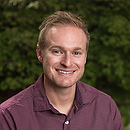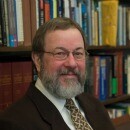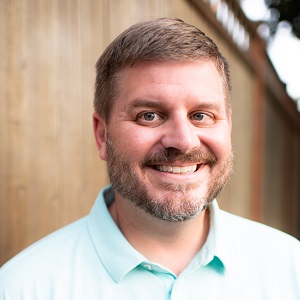Page 52 • (6,044 results in 0.033 seconds)
-
Professors Claire Todd (Geosciences and Environmental Studies) and Sergia Hay (Philosophy) had the honor of working with this year's class of Environmental Studies students as they completed their
2021 Environmental Studies CapstonesProfessors Claire Todd (Geosciences and Environmental Studies) and Sergia Hay (Philosophy) had the honor of working with this year’s class of Environmental Studies students as they completed their interdisciplinary and culminating projects for their major. This capstone cohort tackled a wide range of current environmental issues and employed the methods and tools of multiple disciplines including biology, literature, chemistry, philosophy, art, political
-
24 semester hours, completed with a grade of C- or higher and with a cumulative grade point average of 2.00 or higher in those courses. (Please see the comprehensive list of courses in the program.
Environmental Studies Minor Requirements:24 semester hours, completed with a grade of C- or higher and with a cumulative grade point average of 2.00 or higher in those courses. (Please see the comprehensive list of courses in the program.) 1. Multidisciplinary Courses in Environmental Studies Four semester hours Students select one of the following multidisciplinary courses that anchor their understanding of environmental issues. This course should be completed prior to enrolling in ENVT 350
-
For students, faculty, staff, alumni, and interested persons, there are a variety of ways to engage in Lutheran Studies at PLU.
Engaging in Lutheran StudiesFor students, faculty, staff, alumni, and interested persons, there are a variety of ways to engage in Lutheran Studies at PLU. For undergraduate students, a number of university courses support the study of the Lutheran tradition. They include but are not limited to: History of Western Art II; The Book in Society; German Civilization to 1750; Early Modern European History, 1400-1700; European Reformations; Modern Germany; Christians in Nazi Germany; Music History I
-
8:15 a.m. | March 8 | Karen Hille Phillips Center for Performing Arts Who: Bob Ferguson Title: Washington State Attorney General Bio: Bob Ferguson is Washington State’s 18th Attorney
Anthropology, University of Neuchâtel (2002) Trained as a social anthropologist, Alessandro Monsutti became a member of the faculty in 2010, after having taught at the Graduate Institute of Development Studies from 2003 to 2007. He has been Research Fellow at the School of Oriental and African Studies (1999-2000) and Yale University (2008-2010), Grantee of the MacArthur Foundation (2004-2006), and Visiting Professor at the University of Vienna (2012) and Arizona State University (2014). He is also Research
-

Associate Professor of Psychology | Department of Psychology | clcook@plu.edu | 253-535-7471 | My research explores how social motives and beliefs (e.g., religious, existential, or social beliefs) influence perceptions of threats and opportunities regarding others in our social environment.
Corey L. Cook Associate Professor of Psychology Phone: 253-535-7471 Email: clcook@plu.edu Office Location: Ramstad Hall - 111A Status:On Leave Professional Biography Additional Titles/Roles Title IX Formal Process Team Fulbright U.S. Scholar to Germany Education Ph.D., Social Psychology, University of Florida, 2012 M.S., Social Psychology, University of Florida, 2009 B.S., Psychology, Arizona State University, 2005 Areas of Emphasis or Expertise Stereotyping and Prejudice Evolutionary
Area of Emphasis/Expertise -

Professor Emeritus | Religion | oakmande@plu.edu | The Reverend Doctor Douglas E.
studies, such as: “Was the Galilean Economy Oppressive or Prosperous? Socio-Archaeology and Dimensions of Exploitation in First-Century Palestine” (2014); “Execrating? or Execrable Peasants!” (2013); “The Shape of Power and Political-Economy in Herodian Galilee,” Liberating Biblical Study: Scholarship, Art, and Action in Honor of the Center and Library for the Bible and Social Justice” (2011); “The Perennial Relevance of St. Paul”; and “The Radical Jesus: You Cannot Serve God and Mammon” (2004
Contact InformationArea of Emphasis/Expertise -
The PLU chemistry faculty has expertise in all of the major disciplines of chemistry: organic, analytical, physical, inorganic, polymer, and biochemistry. Our curriculum will prepare you for a job or for graduate study toward an advanced degree. In this Major Minute, Dr. Andrea Munro, Associate…
Major Minute: Andrea Munro on Chemistry Posted by: vcraker / November 10, 2021 November 10, 2021 The PLU chemistry faculty has expertise in all of the major disciplines of chemistry: organic, analytical, physical, inorganic, polymer, and biochemistry. Our curriculum will prepare you for a job or for graduate study toward an advanced degree. In this Major Minute, Dr. Andrea Munro, Associate Professor and Chair of Chemistry shares why it’s a great time to study chemistry and why PLU is a great
-
APA Goals Mapped Onto PLU Psych Curriculum - Students Proposed Integrated101S232P242P300 - RequiredP300 - ElectivesP400 - ElectivesP440xP481P495, P496, P497P499 1.1 Describe Key Concepts, Principles, and Overarching Themes In PsychologyPracticedIntroducedIntroducedPracticedAccomplishedIntroducedPracticedAccomplished - Accomplished 1.2 Develop a Working Knowledge of Psychology's Content DomainsAccomplished - - AccomplishedPracticedIntroducedIntroduced - - - 1.3 Describe Applications of
-
EPC Curriculum Change Template (doc) download
-

Director of IHON | International Honors | dowland@plu.edu | 253-535-8125 | Seth Dowland teaches courses in PLU’s International Honors, First-Year Experience, Religion, and Gender, Sexuality, and Race Studies programs.
Seth Dowland Director of IHON Phone: 253-535-8125 Email: dowland@plu.edu Office Location: Hauge Administration Building - 227-I Status:On Sabbatical Blog: http://usreligion.blogspot.com/ Curriculum Vitae: View my CV Professional Biography Additional Titles/Roles Professor of Interdisciplinary Studies Education Ph.D., American Religions, Duke University, 2007 M.A., American Religions, Duke University, 2004 B.A. with distinction, Religious Studies & History, University of Virginia, 2001 Areas of
Area of Emphasis/Expertise
Do you have any feedback for us? If so, feel free to use our Feedback Form.


